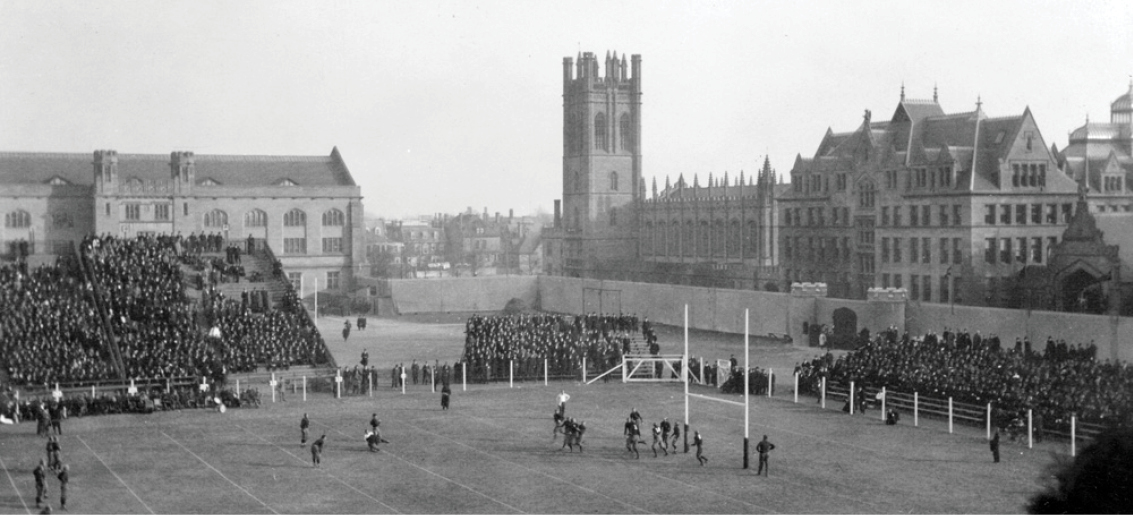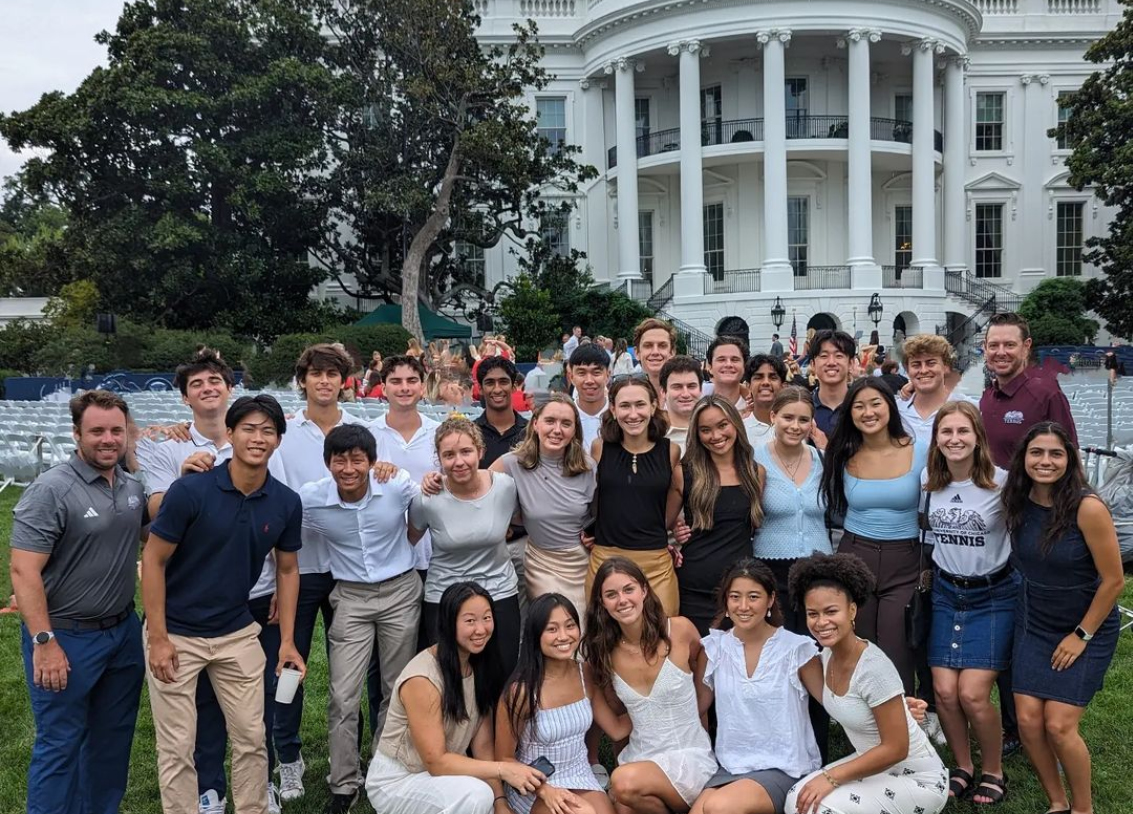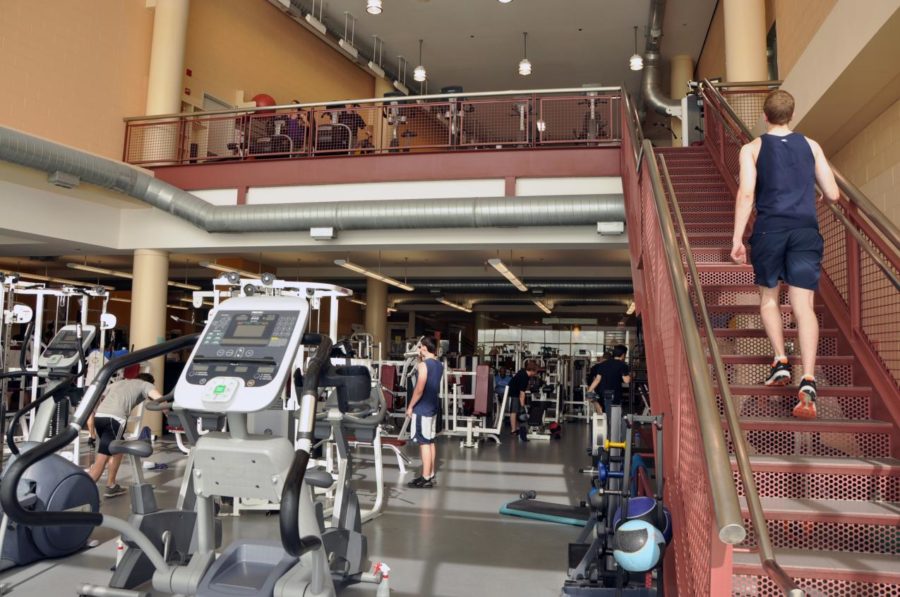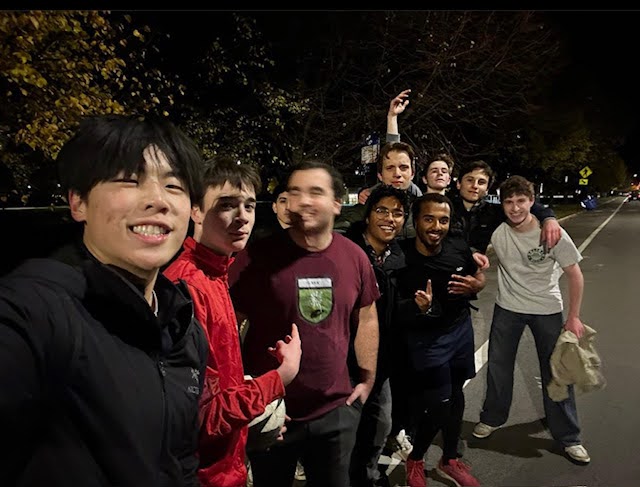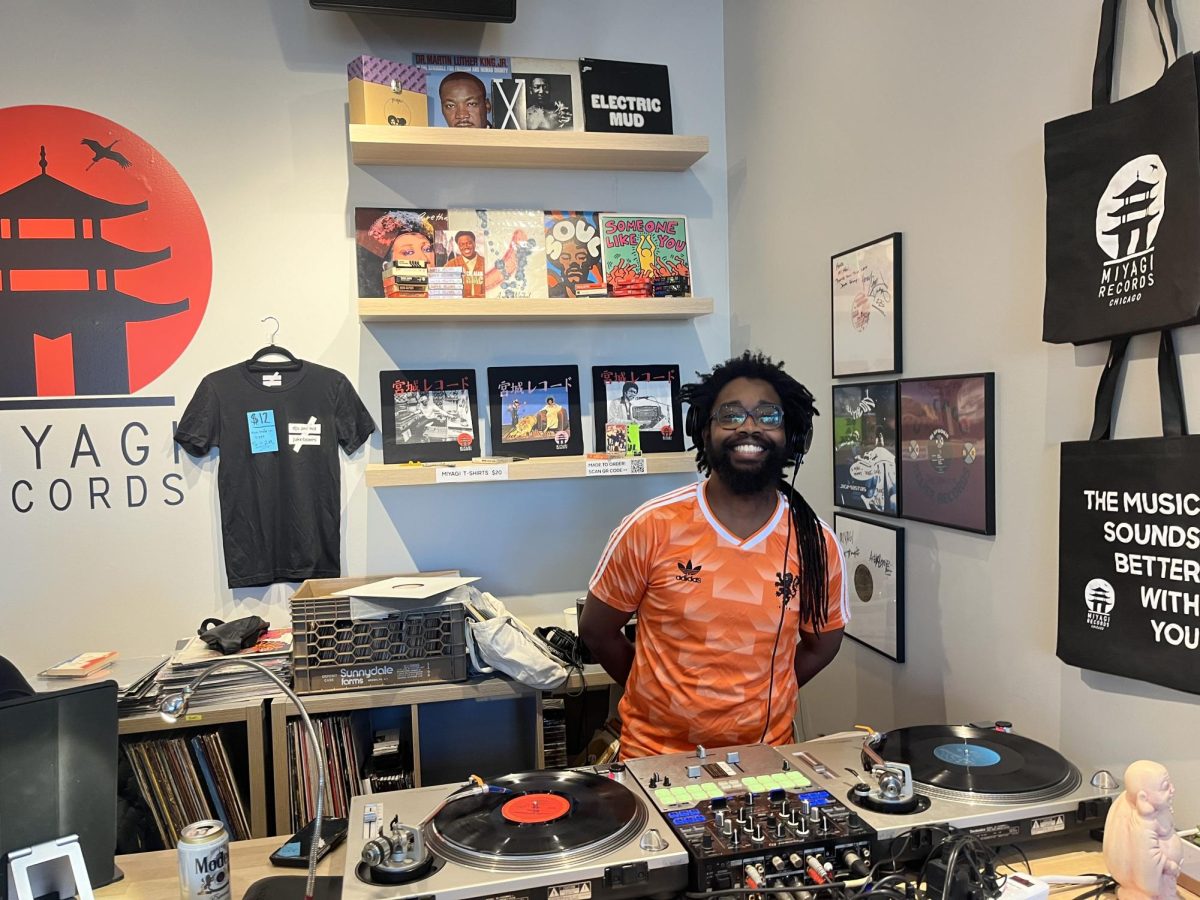The Maroons thought they had each of the proper ingredients for their recipe: They were trying to cook up a bid to the NCAA DIII baseball tournament.
What they seem to have been missing was a proverbial secret ingredient, one that may have resulted from unknown tweaks in the national selection process.
The selection announcements were a bit chaotic and perhaps a sign of things to come for the South Siders. The NCAA website initially said that the tournament field would be posted at or around 9 p.m. on Sunday, May 13. Instead, the matchups were not put online until early Monday morning.
“I remember staying up with basically my whole baseball team communicating back and forth, constantly refreshing the [@D3Baseball] Twitter and website. The [D3Baseball.com] website came out with a mock draft, in which we were regarded as [a] top-seven team in Pool C of about 16 teams,” second-year pitcher Ray Kim said. “We weren’t even considered on the bubble, so I was convinced when it hit 2 a.m. central time we were going to be heading towards Tennessee or Wisconsin…for the NCAA playoffs.”
Once Monday morning came around, Chicago had to cancel any celebration—they found that they had been passed over for a lower-ranked team in their region, Illinois Wesleyan, as well as 15 other teams.
Despite strong seasons in the past, baseball has never received a bid to the NCAA tournament. The Maroons are not affiliated with a conference in baseball (or softball), both because of scheduling difficulties and because the UAA does not have an automatic bid to the NCAA tournament in these two sports. That leaves baseball’s postseason fate entirely in the hands of the NCAA selection committee.
In 2003, Chicago went 25–6 overall but was left out of the tournament, back when the national field was limited to just three or four at-large bids and convoluted, point system–informed rankings. The tournament has since been expanded by about a dozen teams, the formula for strength of schedule has been improved, and the rankings on which selections are based have been made public. And this year, strong performances against a top-notch schedule—and consistent presence in the Central Region’s top two spots in the official NCAA rankings—had many thinking that this was finally the year.
“I feel terrible for our seniors as they worked very hard over their four years here towards making the postseason, and to be so close their senior year and be left out is very unfortunate,” second-year outfielder Ricky Troncelliti said.
But exactly what happened to make it such that on Monday morning, the words “University of Chicago” were nowhere to be found on the list of teams receiving bids? How did something that seemed like a lock turn into nothing more than a long offseason for the Maroons?
GOING IN ORDER
Anyone who has followed college sports knows that there’s always a mix of math and magic that goes into making NCAA tournament selections. But DIII uses a particularly ordered process that offers some welcome transparency.
The eight regional committees rank their top teams based on a set of primary and, if necessary, secondary criteria. For the last several years, the official regional rankings have been released to the public by these NCAA committees, which are comprised of coaches from various conferences. So, for the last three weeks of the regular season, teams are given a rough idea of where they stand.
Chicago had been ranked first in the Central Region during week one, and they slipped only to second for the remaining three weeks.
On “Selection Sunday,” a national committee works to fill out the playoff field, which this year stood at 56 teams. Of those, 38 were automatic bids assigned to conference winners (Pool A). Teams who aren’t part of a conference with an automatic qualifier are eligible for two exclusive bids (Pool B). And any team who doesn’t get a Pool A or Pool B bid is then thrown into a discussion for the remaining 16 at-large berths (Pool C).
Working off the regional rankings, the national committee considers the top available team in each region. The eight teams “on the board” are discussed until an at-large selection is made. That school’s region then nominates their next-best available team, and this repeats until all bids have been assigned.
At least, that’s how it had worked in the past.
COMMITTEE CHANGE-UP
Had that been the case, it would have been literally impossible for the Maroons (No. 2 in the Central) to find themselves left out of the tournament in favor of Illinois Wesleyan (No. 4, and the next available team). Both could have been left out, both could have made it, or Chicago could have been selected but not Illinois Wesleyan.
It turns out the NCAA decided to tweak the process in a few small ways, which have added up to a significant effect on Chicago’s playoff chances and have surprised some of its membership.
The changes were fourfold, according to Anthony Holman, NCAA Assistant Director of Championships:
1. The rankings weren’t produced by regional-committee consensus but rather by a private, online vote. This was an across-the-board move, as verified by the Maroon with other sports’ championship committees.
2. The national committee could no longer revise the regional rankings if they disagreed with them. These unaltered regional rankings were published online for the public.
3. Because the regional rankings were determined independently of the national committee, the latter only had to use them as guidance.
4. The national committee also decided to no longer follow the one-at-a-time regional nominations. Now, multiple teams from each region could be put on the board when the discussion seemed to merit it.
These were changes that Holman suggested were not secret, though Chicago coaches said they were not told of any changes other than No. 2. The Maroon found that a D3Baseball.com interview with Holman prior to the season did describe No. 2 and 3 above, but it did not address No. 1 and 4.
“Now the committee is taking a more global look when we get to Pool C because we’re not bound by those regional rankings,” Holman said. “Other teams could be considered from the same region at the same time.
“Chicago, as I mentioned, was certainly the first one from their region to get on,” he added. “But as they continued to go through the process and drill down the numbers, there’s a look, ‘Hey, is there anybody else in your region that should be considered at this time as well?’ That’s how Illinois Wesleyan gets into the picture…. While it looks like it was, ‘Chicago or Wesleyan: How’d Wesleyan get in or take our spot?’ that wasn’t the case at all. They were being compared against a wide variety of teams.”
An e-mail request for clarification on how process changes were communicated was sent to Holman, who was on the road for this week’s baseball championships and unable to respond by press time.
In a survey of coaches and NCAA championship committee members familiar with the process in other sports, all said that their national committees had only used the one-at-a-time nominations from each region. Many expressed surprise to hear of deviation from that.
Holman and national chair Gregg Kaye both explained that subjective criteria did play a part in the national selections. Kaye did emphasize, however, that any such arguments had to tie into the official criteria.
One that may have impacted the Maroons is that the national committee did not take their strength of schedule at face value. Without commenting specifically on Chicago’s situation, they did say that the national committee tried to read into when teams faced opponents—and how they thought that affected pitching matchups, for instance.
“The folks on our committee are pretty astute baseball folks,” Holman added. “They drill down into who did you beat and when did you beat them…. Those are subjective things that come into play as well, especially when you’re splitting hairs for a select few spots. While we share that information [a spreadsheet of official in-region win percentage, strength of schedule, and record vs. ranked] and want to be transparent, there’s still a number of different ways in which it can be analyzed.”
This may have disproportionately affected Chicago, which has gone out of its way to face tough opponents but, as an independent school, must do so around others’ fixed conference schedules. It also requires an implicit belief that the national committee can better judge these subjective situations than the regional committees can. Holman acknowledged this as a fair criticism.
“I think folks will see that, and we may hear from the membership that that’s how they want it. We certainly serve at their pleasure. If that’s a direction we’ll be pulled back to, we certainly will.”
Only one member of the national committee, Central Region chair Greg Wallace, would have first hand knowledge of the region. Wallace is the varsity baseball head coach of Augustana, which competes in the same conference as Illinois Wesleyan. As chair, Wallace does not have a vote in the regional rankings, but does have a say in the national committee.
Kaye denied that conference bias could have impacted the selections—both because of the integrity of their members as well as the checks and balances involved.
LEFT AT HOME
It’s common that a team left out of the tournament feels slighted. But in this case, Chicago had the combined votes of five Central Region coaches—representing North Central, Coe, Wash U, Lawrence, and Webster—also on their side. At No. 2, they were the only team ranked in the top four of their respective region to not make the NCAA tournament.
“The Central Region Advisory Committee’s [RAC] desire to have Chicago receive the first Pool C bid from the region should have been honored, and any team ranked second in its region by the RAC should be selected for that regional tournament,” Chicago head coach Brian Baldea said in a statement to the Maroon.
Chicago has no ability to appeal the selections, and the tournament will wrap up in the coming days. The program’s only option has been to express its displeasure.
In the NCAA’s mind, the end result could have worked out similarly under the old process. The national committee could have overruled the Central RAC’s rankings so that Chicago would have been beneath Illinois Wesleyan—and nobody would have known any differently because only the “corrected” rankings would have been posted publicly.
But baseball’s national committee appears to have gone beyond other sports this year in modifying the process. By moving away from the one-from-each-region nominations, it’s nearly impossible to deduce which criteria were used when.
“The resulting legislation is of most importance, and we got that,” D3Baseball.com’s Ricky Nelson said. “But it’s interesting (and lawful in this analogy) to know what the branches of government negotiate during the process. All we got to see after the 2012 Division III baseball selection process was a House draft and the resulting decision. Among other questions, what did the Senate do to the House draft? We’re left to read between the lines.”
That’s an answer Chicago—including its graduating fourth-years Alex Garcia, Stephen Williams, and Preston Attebery—has been left searching for while others played on.
“We had a tremendous season,” Troncelliti said, “and we were all very hopeful that we had achieved enough to be included in the tournament.”



